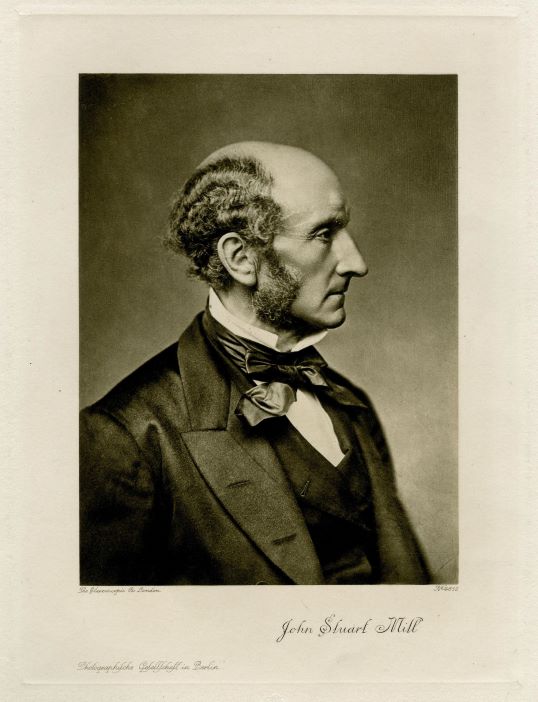Liberty Matters
Ricardo, Malthus, and Mill
 Steve Kates’s response to the discussion raises several new threads. I briefly take up the 19th-century discussion on general gluts.
Steve Kates’s response to the discussion raises several new threads. I briefly take up the 19th-century discussion on general gluts.Gluts
Mill’s famous proposition about the demand for labor came as settled doctrine after a long discussion between David Ricardo and T. Robert Malthus. Perhaps the best secondary source on the discussion is the one I poured over as an undergraduate at the University of Toronto, The Economics of David Ricardo by Samuel Hollander (Toronto: University of Toronto Press, 1979). Full disclosure: Hollander later became my dissertation advisor.
Since Kates has an interest in linking this policy discussion to today’s policy discussions – and I agree there are reasons to do so – I think it pertinent to add to our discussion some context for the Malthus-Ricardo conversation.
On Machinery
The question that bedeviled Ricardo and others early in the 19th century was whether a significant, prolonged decrease in the need for laborers as a result of widespread, even general, mechanization, such as was apparently occurring during the Industrial Revolution, warranted a pessimistic outlook for the future. As handloom weavers and others were displaced by mechanized means of production, political economists attempted to work through the analytics of whether growth would still mean that employment opportunities would abound. As Hollander puts it, “For the reabsorption of labour displaced by machinery, Ricardo relied in part upon increased demand for service labour out of net revenue and in part upon net accumulation. In this Ricardo in effect followed [Adam] Smith.” (p. 373) Mill followed Ricardo’s line of thought in this regard.
More than this, however, it is striking how in the context of the contemporary situation, the notion of general displacement still resonates with the public and with some intellectuals trained in economics. With each significant technological change—the assembly line, computers, robotics--that disrupts our society, worries emerge about whether we will generally need less labor going forward. And then the discussion begins as to what to do about it. I leave this latter for a future comment!
Copyright and Fair Use Statement
“Liberty Matters” is the copyright of Liberty Fund, Inc. This material is put on line to further the educational goals of Liberty Fund, Inc. These essays and responses may be quoted and otherwise used under “fair use” provisions for educational and academic purposes. To reprint these essays in course booklets requires the prior permission of Liberty Fund, Inc. Please contact oll@libertyfund.org if you have any questions.